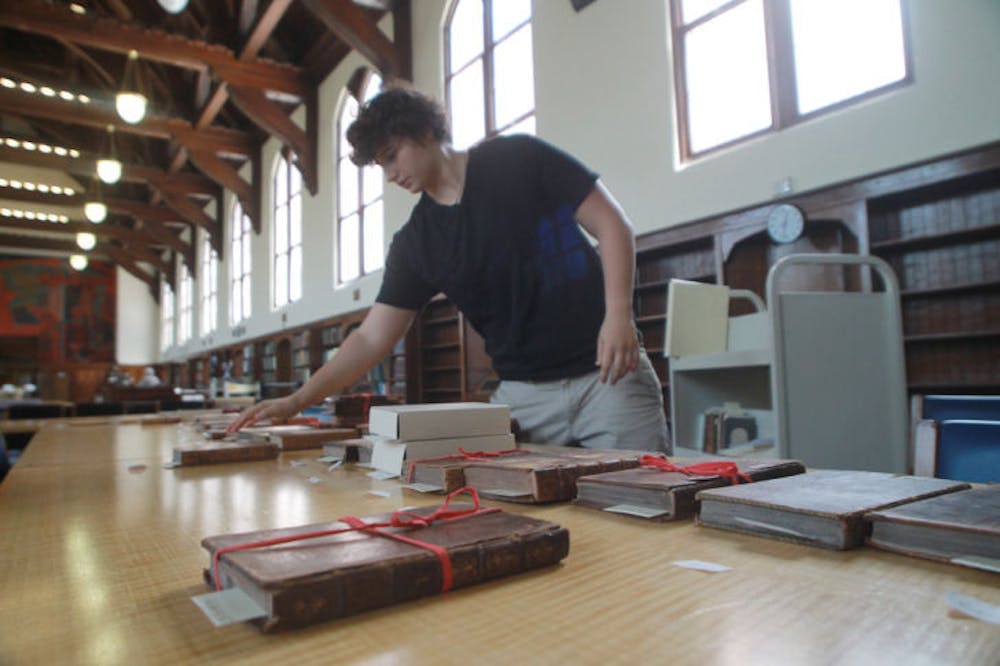UF received a $325,000 grant to digitize historic newspapers from Florida and Puerto Rico published between 1836 and 1922.
The National Endowment for the Humanities (NEH) chose UF as the only institution in the state of Florida to receive the grant.
Patrick Reakes, chair of the Humanities and Social Sciences Library, said the grant is part of the National Digital Newspaper Program, a long-term collaboration between the NEH and the Library of Congress to make newspapers more widely available.
“It’s exciting for me because I know how heavily used historic newspapers are,” he said.
The library received the confirmation letter in August, and the two-year project is planned to begin in October.
An outside vendor will digitize the film for the newspapers, and metadata, or “data about data,” will also be created so people can search the articles.
Reakes said part of the library’s mission is to provide access to materials, and the project will fulfill that purpose.
“It’s a really good use of the money to create something that we know is going to be heavily used,” he said.
Reakes said the existing Florida Digital Newspaper Library and the Caribbean Digital Newspaper Library had about 19 million hits in 2012, and the demand for digital access drove the decision to create more of it.
“There’s obviously a really strong demand for this kind of digital access,” he said.
Currently, a specialist can take a picture of each individual page of the paper and put it onto a roll of film that can then be looked at through a microfilm reader.
“A lot of our history classes or people doing any kind of historical research come in and have to roll that film through a microfilm reader,” he said.
Ben Fritzsche, a 20-year-old history junior, said he has used both the microfilm and the UF Digital Newspaper Library, and with the new resources, a broader range of articles will be available to students.
“I’m a big fan,” he said. “For me, the information is still going to be there, it’s just easier to access it.”
Once completed, the digitized newspapers will be available through the “Chronicling America” section of the Library of Congress website.
Reakes said because these historic newspapers are starting to deteriorate, digitally archiving them is essential.
“If this stuff goes away and the film isn’t available anymore, it’s basically lost to history,” he said.
A version of this story ran on page 3 on 9/5/2013 under the headline "UF receives $325,000 grant to digitize historic newspapers"
English senior Claudia Perlini, 22, sifts through a collection of 17th and 18th century children’s literature in the University Archives in the George A. Smathers Libraries. The libraries were awarded funding from the National Endowment for the Humanities to digitize approximately 100,000 pages of historic newspapers.






